People often ask: “What is the best eczema cream?”
The answer? Two.
Two to be exact — Flare Control Creams and Moisturising Eczema Creams.
➡️ Learn more about Flare Control Creams
➡️ Learn more about Moisturising Creams
Flare control creams help get control, while moisturising creams help keep control.
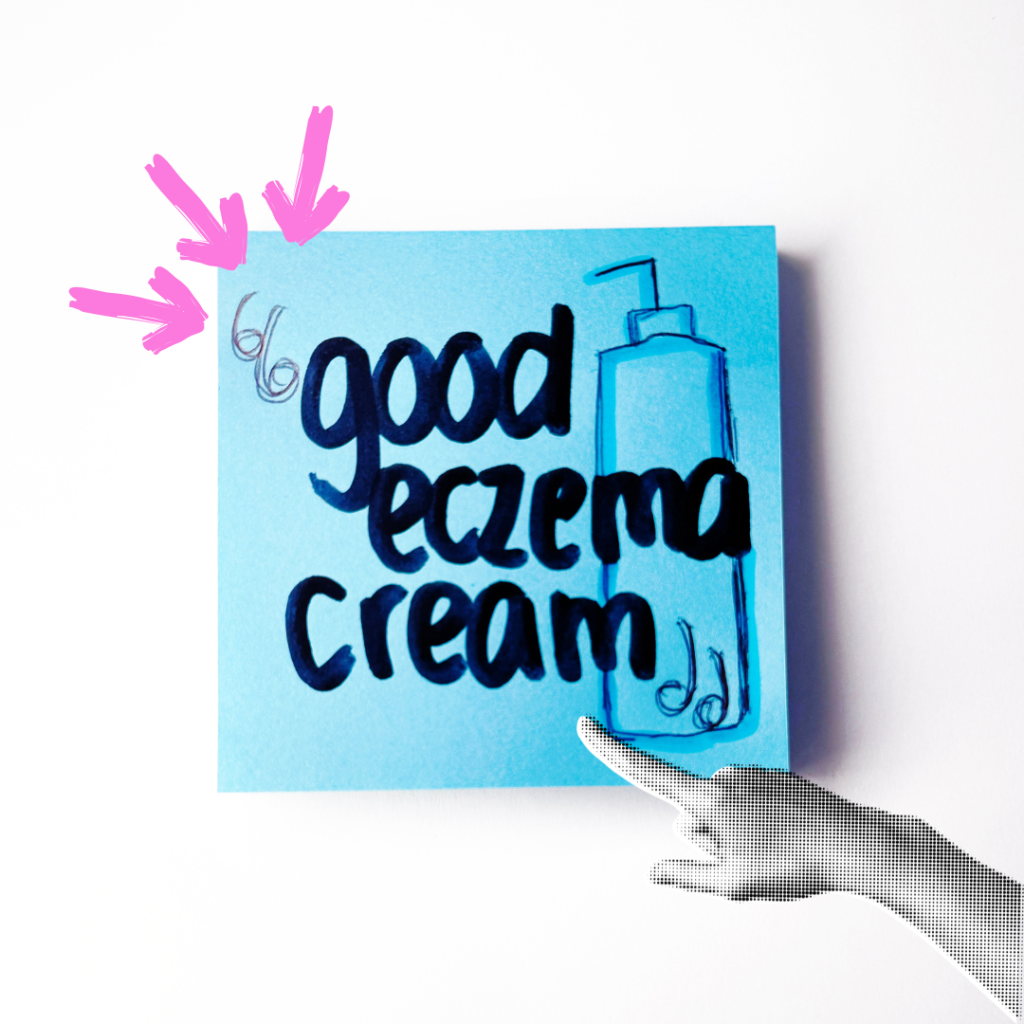
What Makes a Good Eczema Cream?
A good eczema cream is one that:
- You’ll use a lot — every day.
Eczema creams are simple moisturisers without unnecessary additives like perfumes or anti-ageing ingredients.
They should NOT contain:
- Food-related products (such as nuts, coconut, or milk)
- Plant extracts, essential oils, sodium lauryl sulphate (SLS), or benzalkonium chloride (which can irritate eczema)
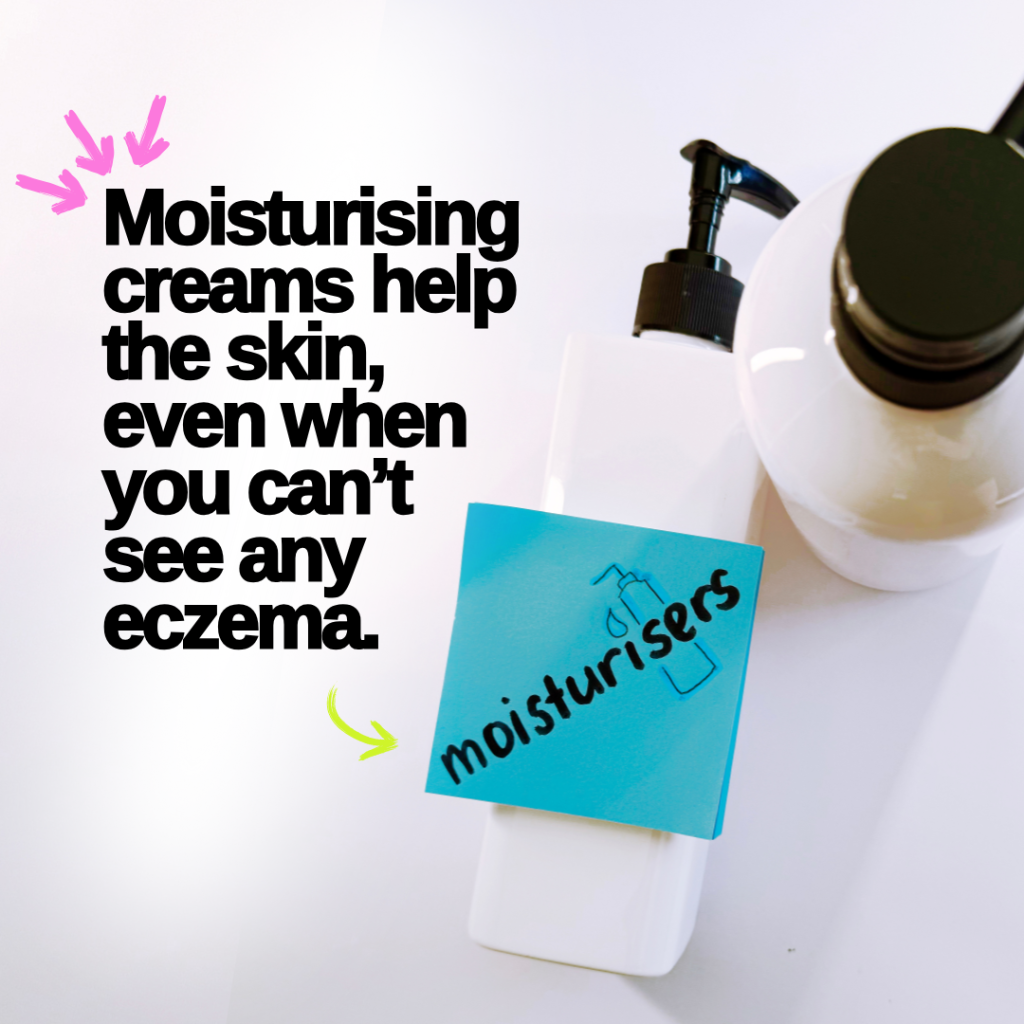
Why is Moisturising an Important Habit?
Even when your skin looks clear, moisturising matters.
Moisturising creams help the skin, even when you can’t see any eczema. Because they assist to lock in moisture in the skin barrier, they help keep the skin smooth and supple so it can cope with everyday things that might cause a flare-up.
Eczema moisturising creams form a barrier over the skin to protect the skin and keep control of eczema. They help to:
- Stop eczema flare-ups by keeping out things that may irritate the skin
- Make the skin soft by locking water in the skin
- Keep out infections, which are more likely in dry skin
Visit our Eczema Moisturisers page to find a safe moisturiser for eczema.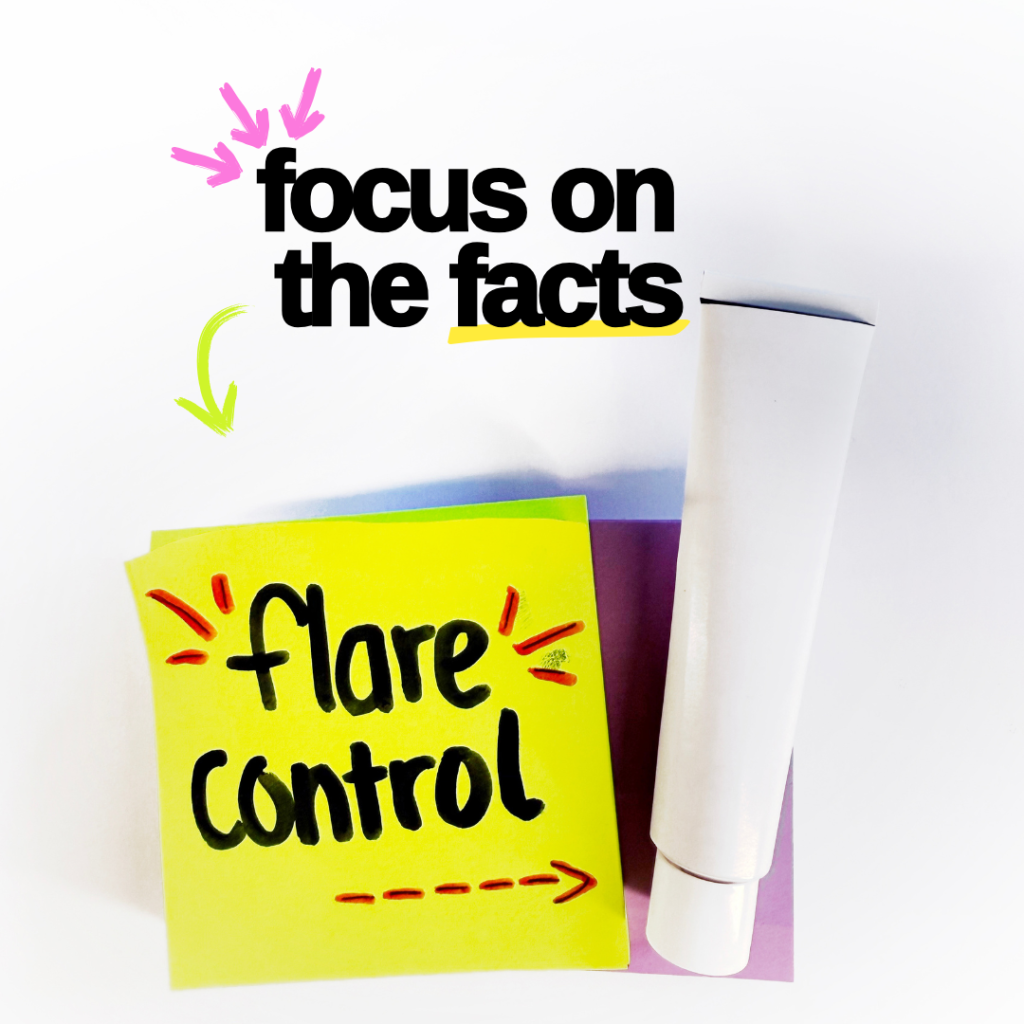
Flare Control Creams (Topical Corticosteroids)
There’s a lot said about topical steroids online. Let’s focus on the facts about Flare Control Creams.
Topical corticosteroids :
- Should be used as soon as there is a flare up
- Remain the most common type of flare control treatment
- Are safe to use under medical supervision
- Do not thin the skin when used correctly
- Should be used until a flare is completely cleared (eczema is often still active under the skin).
Visit our Topical Corticosteroids for Eczema Flare Control page to explore:
- FAQs: One-pager on Topical Corticosteroids
- Expert answers from a dermatologist
- April’s Story – a personal account of topical steroids
This page was designed with patients, carers, and specialists — using the most up-to-date and trusted evidence.
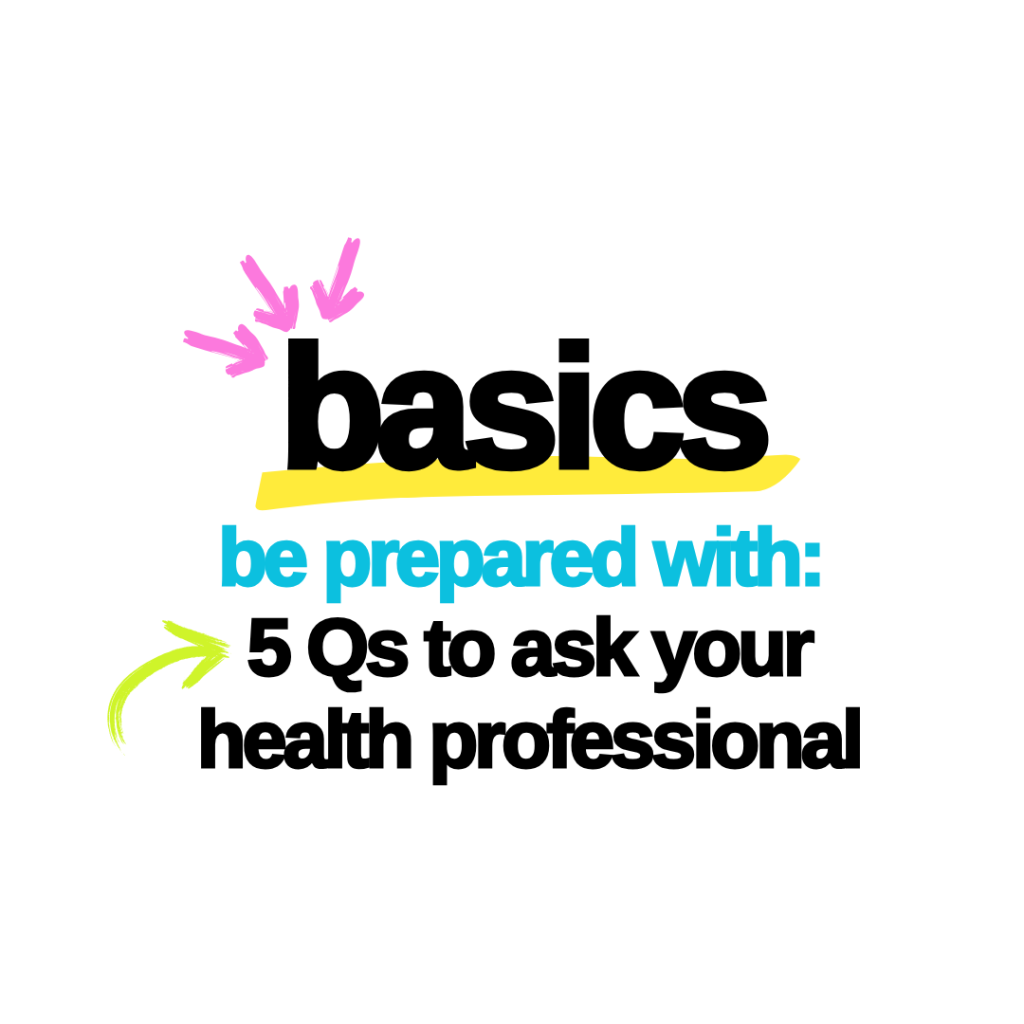
When Eczema is Hard to Manage
Sometimes, even when you’re doing everything right, eczema remains difficult to control.
When that happens, seek professional help as soon as possible.
We’ve created a helpful guide:
👉 5 Questions to Ask When Your Eczema is Hard to Manage
This one-page resource helps you have informed conversations with your healthcare team.
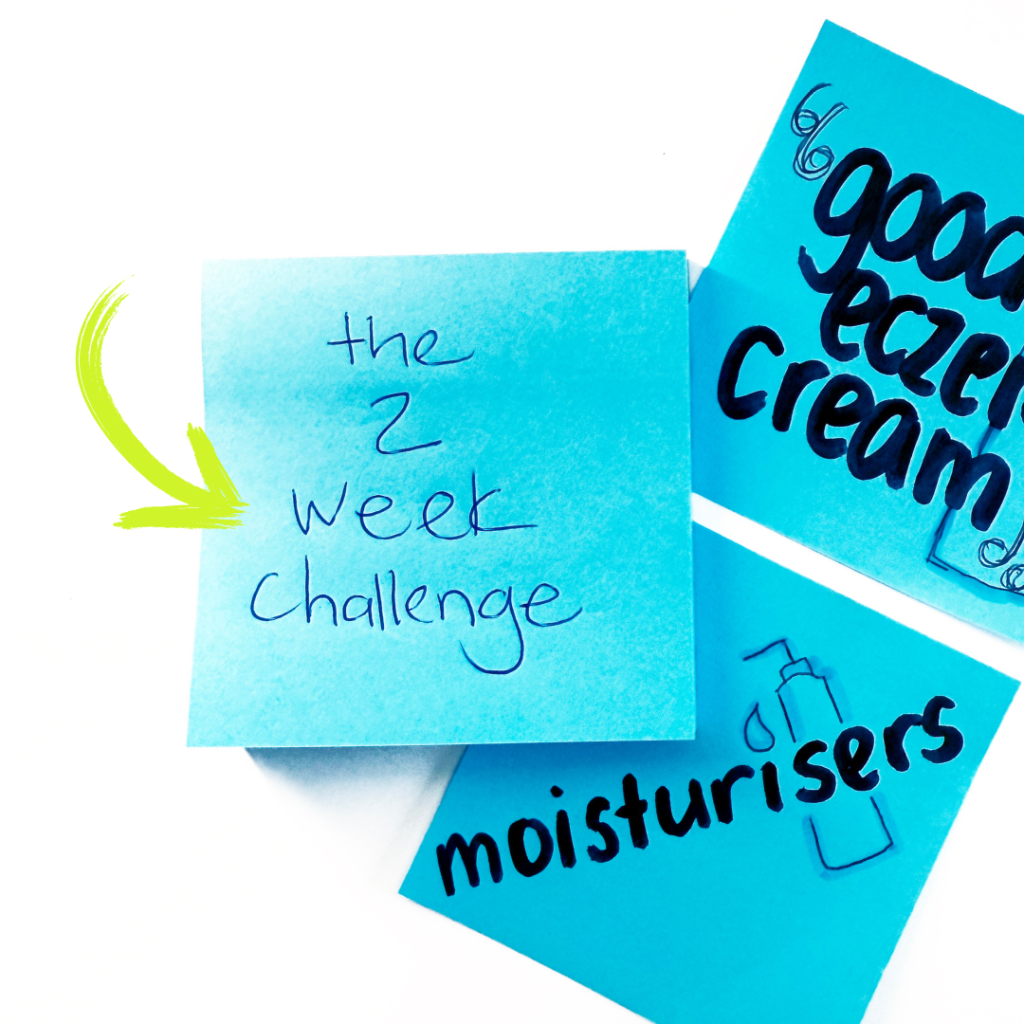
Take the 2-Week Moisturising Challenge
Want to see what a difference daily moisturising can make?
Try the 2-Week Challenge — it’s simple and empowering. This can be done by yourself or your child with eczema.
- Choose a moisturising cream.
- Use it generously every day for 2 weeks.
- Track your progress using the chart provided.
It’s a great way to find a cream that works for you — and to see just how much your skin can improve with consistent care.
Start your challenge today:
➡️ Take the 2-Week Challenge
It is important that we remember the basics when eczema feels hard to manage.
Eczema moisturising creams are used to keep control. They should be used at least once a day after bathing or showering. The drier your skin is, the more often you should use a moisturising cream. They are effective at stopping eczema flare-ups and itching, by keeping out things that may irritate the skin and they make the skin soft by locking in moisture.
Flare control creams (usually topical corticosteroids) are used to get control. Most people with eczema will need to use flare control creams at some point. Used under medical supervision, they are safe and remain the mainstay treatment for eczema flares. They should be applied generously, as directed by your health professional, to all areas of inflammation until skin feels smooth and is itch free.

Getting Back To Basics Together
Going back to basics can make a real difference. When eczema feels hard to manage, it’s worth remembering that these two treatments — used well and used often — remain the best way to get control and keep control. Consistent care builds confidence, and small daily habits can make life with eczema more comfortable.
You don’t have to face eczema alone. If you’re feeling unsure about how to manage flares or find a routine that works, talk with your healthcare professional and connect with others through Eczema Support Australia. Together, we can help you get back to basics — and back in control.